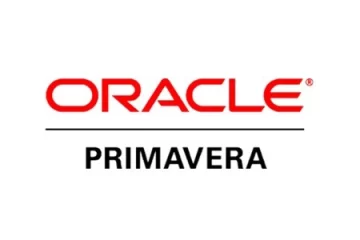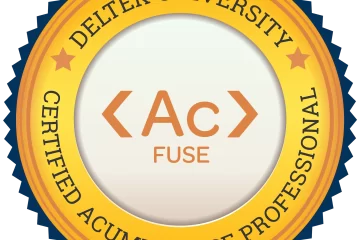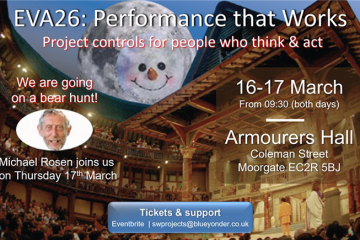Michael Higgins, Founder and Project Controls Consultant at Xacom has been helping the Preston Vocational Centre Board as a volunteer for many years.
Based in Lancashire Preston Vocational Centre aims to advance the education of children, young people and adults in and around the Preston area. Their cause is close to Michael’s heart as he believes passionately in helping others. Since becoming involved in the charity Michael has consistently applied his Project Management skills to help the organisation achieve their mission.
In this article Michael discusses how he’s applied his Project Management skill set to make an impact and improve performance.
From Michael Higgin’s desk
Preston Vocational Centre is an award-winning charity based in Lancashire. Its impact is far reaching and this little-known charity is leading the way in educational establishments providing support services for those where mainstream education may not necessarily be the best fit.
Established in 2009 Preston Vocational Centre has since inception seen over 6,000 learners come through the door. In 2013 the charity became part of the Community Gateway Association Group as a subsidiary of the Preston based housing association, forming an integral part of the employment and skills agenda.
In 2021 the charity was awarded the Be Inspired Business Awards (BIBAs) Educational Establishment of the Year, which is a real testament to the dedication and hard work from the entire team.
Having completed an apprenticeship myself, I completely understand the advantages of blended learning where the ‘mix’ of practical and theoretical ‘collide’. I was fortunate enough growing up to have a supportive family and development opportunities. Not everyone has that privilege.
This is what attracted me to the charity and the provision of education it provides for those who may otherwise not have had the opportunity and particularly those in do not fit into the ‘conventional’ education system.
When I was growing up it was drummed into me that education was important and that we should take every opportunity to grow and develop. I often recall my Grandad telling me that ‘education is no weight to carry’ and that’s really stuck with me over the years and this is one of the reason why I am so passionate about education – my own career path has had education and personal development at its core.
I joined the board of Preston Vocational Centre in 2018 and in 2020 was honoured to take the position as Chair of the board. To be honest when I was first made aware of the opportunity I wasn’t so sure how transferable my skill set would be. In actual fact my skills were instantly transferable and put to good use!
As set out in the charity’s governing documents the board is responsible for its governance, ensuring that it is effectively and properly run and that it is meeting its overall purposes.
The board is comprised of trustees who work together and are responsible for the overall governance of the charity. Despite the considerable differences in structure and size of charities and boards, all trustees and all boards share some fundamental responsibilities.
Chairs are trustees with a specific role on the board. As specified in the charity’s governing documents the chair can either be elected or appointed. The chair is responsible for chairing meetings of the trustee board.
Other roles of the Chair:
- supporting and supervising the head of staff or operational manager and acting as a channel of communication between board and staff
- acting as a figurehead for the charity
- leading on the development of the board and ensuring its decisions are implemented
- taking urgent action (but not decision making unless authorised) between board meetings when it isn’t possible or practical to hold a meeting
Teamwork
Just like a Project Manager the chair is supported by numerous team members all of which bring a unique skillset to the team. The trustees on the board have the following roles and responsibilities.
- Furthering the charity’s overall purpose, as set out in its governing document and setting its direction and strategy
- Ensuring the work of the charity is effective, responsible and legal
- Safeguarding finances, resources and property and ensuring they are used to further the charity’s purposes
- Being ‘accountable’ to those with an interest or stake in or who regulate the charity
- Being clear about the people who carry out work on behalf of the charity – trustees, staff, volunteers
- Ensuring the board operates effectively
It’s clear to see parallels between the Project Management professions and the areas a trustee is involved with.
At each board meeting the trustees review the board pack which includes information on Operational, Financial, Governance and HR elements. Each area is collated by the respective specialist in that area and really brings together a broader picture of how the centre operates as a whole. The specialists also attend the board meeting so the trustees can challenge and better understand the content of the information in the pack.
Monitoring and managing performance
From the information provided in the board packs and the board meeting the trustees makes sure that:
- operational plans and budgets are in line with the charity’s purposes, strategic aims and resources
- checks performance against the charity’s strategic aims, operational plans and budgets
- agrees what information is needed to assess delivery against agreed plans, outcomes and timescales. Trustees share timely, relevant and accurate information in an easy-to-understand format
- considers information from other similar organisations to compare or benchmark the organisation’s performance
Actively Managing Risks
The board retains overall responsibility for risk management and discusses and decides on the level of risk it is prepared to accept for specific and combined situations.
There is a dedicated risk management process for identifying, prioritising, escalating and managing risks that the board regularly checks.
The risks are reviewed at each board meeting and mitigation plans are reviewed. One of the areas of risk that we pay attention to is safeguarding as we work with children and in some cases vulnerable adults.
Stakeholder Management
Just like a typical project management situation there are so many stakeholders involved in the moving parts of the charity. As with a project, it’s important to understand who needs to be engaged and influenced, how to navigate socio-political complexity, work with people to build support to achieve intended outcomes, making it easy to collaborate and solve problems and facilitating win-win solutions where possible.
It’s surprising just how transferable project management skills are across different roles outside of the traditional project profession.


